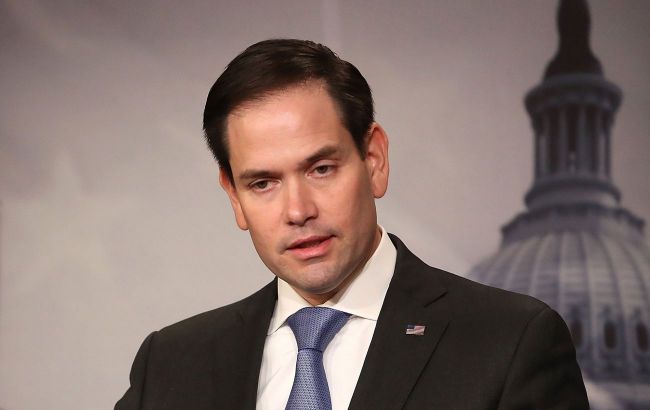Rubio, Secretary of State, visits Central American countries
 US Secretary of State Marco Rubio (photo: Getty Images)
US Secretary of State Marco Rubio (photo: Getty Images)
US Secretary of State Marco Rubio has embarked on a visit to several Central American countries. The purpose of the trip is to advance President Donald Trump’s agenda of paying more attention to our neighborhood, reports CNN.
It is reported that the head of US diplomacy will visit Panama, El Salvador, Costa Rica, Guatemala, and the Dominican Republic.
Specifically, on Saturday, February 1, Rubio arrived in Panama for his visit. Central topics for his meeting with officials will include migration and discussions on the future of the Panama Canal, which Trump intends to bring back under US control.
Panama is also crucial to efforts aimed at reducing migrant flows. The country is home to the Darien Gap, a treacherous jungle that connects South and Central America. Crossings through this area serve as a barometer for how many migrants may be heading toward the southern US border. The number of people crossing this passage has sharply decreased.
According to Panama’s National Migration Service, the number of migrants who crossed Panama in the first 23 days of January 2025 has decreased by 93% compared to the same period last year.
During his visit, Rubio is also expected to emphasize efforts to counter China in the Central American region.
Regarding migration, Trump’s officials are developing a strategy for Latin America, fully aware that this region is an integral part of their aggressive deportation program.
The recent public confrontation between Trump and Colombian President Gustavo Petro, which lasted less than a day, became a key topic of discussion among Trump’s officials and offers insight into how the administration plans to approach its relations with regional allies.
"We need to work with countries of origin to halt and deter further migrant flows, and to accept the return of their citizens present in the US illegally," Rubio wrote on Friday in the Wall Street Journal.
However, it remains unclear how the administration plans to cooperate with its partners in the Western Hemisphere.
In the region, there are dozens of programs that have been affected by the sudden and radical suspension of foreign aid. These programs include efforts to combat drugs, which, according to reports, will be a priority during Rubio's visit to the Dominican Republic.
Cooperation with El Salvador
One of the challenges of Rubio’s visit will be how the Trump administration utilizes its relationship with El Salvador. US officials are negotiating with the country on an asylum agreement that would allow the US to send asylum seekers who are not Salvadoran to El Salvador in search of protection.
This issue is expected to be discussed during Rubio’s meetings with El Salvador President Nayib Bukele and other officials.
"During the first Trump Administration, El Salvador was one of three countries that had a Safe Third Agreement with the United States, which will also be a topic of discussion," said Trump special envoy for Latin America Mauricio Claver-Carone.
The US and El Salvador are also planning to discuss the possibility of deporting suspected members of the Tren de Aragua gang, which originates from Venezuela to El Salvador, where Bukele’s large-scale and brutal anti-gang campaign has garnered praise from the Trump administration.
Repatriation agreement with Costa Rica
During his visit to Costa Rica, Rubio will also seek to expand repatriation efforts.
"One of the subjects of discussion will be a repatriation program with Costa Rica to help with not only those that are coming up from South America but those that are coming from throughout the world, extra-continentals that are coming through and how they can help repatriate in that manner," said Claver-Carone.
“We look forward to expanding with Guatemala the discussions on how to continue to support us on migration, and obviously countering Chinese influence throughout the region," Claver-Carone added. Guatemala maintains diplomatic relations with Taiwan, while other countries, such as El Salvador, do not.
Trump's intentions regarding the Panama Canal
At the end of last year, Donald Trump announced his intention to regain US control over the Panama Canal. He also did not rule out the use of military force to achieve this.
Recently, Panama’s President José Raúl Mulino denied any negotiations with the US regarding ownership rights over the Panama Canal.
Meanwhile, Colombia has raised tariffs on imports from the US by 25%. This move comes in response to Trump’s plan to impose a series of tariffs and new sanctions on the country.

